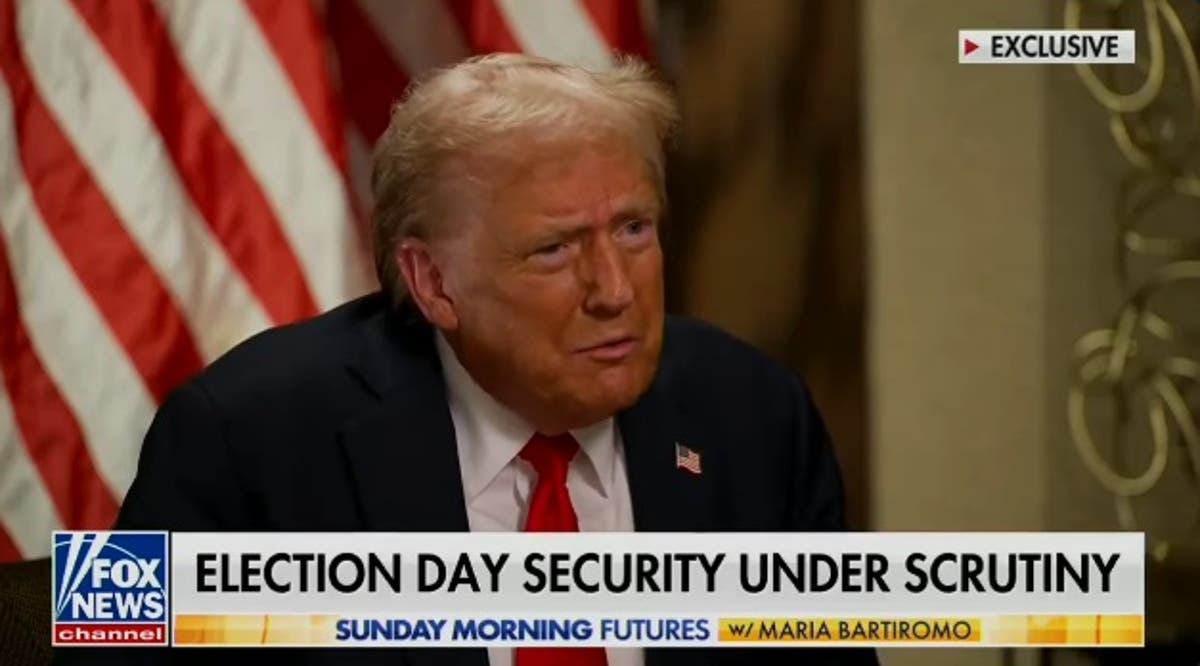‘I think the bigger problem are the people from within, we have some very bad people, sick people, radical left lunatics,’ Republican candidate tells Fox’s Maria Bartiromo
…
“And it should be easily handled by, if necessary, by National Guard, or if really necessary, by the military,” he said.
“I think the bigger problem is the enemy from within. Not even the people who have come in, who are destroying our country.”
It isn’t clear under what circumstances Trump would view it justifiable to call in US troops against his own countrymen.
But his comments mark a baseless attack and a particularly hollow one coming from someone whose supporters violently attacked the US Capitol in an attempt to stop him from being thrown out of office three years ago.
🗳️ Register to vote: https://vote.gov/



Yeah that’s a fair point. I looked into it a bit more, right-wing extremists have sharply increased since Jan 6th, so there is a concern there. It isn’t 99/100 though.
Still high, like 90/100<EDIT> Maggoty got some data, real number for violent terrorist attacks by political ideology is 85% far right to 8% far left. Or rather, 58% far right, 8% far left, 27% Islamist </EDIT>For anyone interested in the stats, this is taken from the Profiles of Individual Radicalization in the United States (PIRUS) dataset at start.umd.edu
That includes literally any ideologically motivated crime. Protesting in the street is an ideologically motivated crime. It includes people who are just associated with extremist groups. So if your brother joins a group, congratulations, this graph represents you.
This is not what anyone is talking about when they say “terrorist attacks”. And neither is releasing the cows, or egging an elected official, or handcuffing yourself to a building. This is as disingenuous as it gets.
Kicking around their Keshif tool quickly reveals that the Far right makes up 57% of all violent ideological crimes since ~1950. The far left makes up 10%.
Using filters for mass casualty crimes, intended and successful, since 2000, reveals 58% Far Right, 8% Far left, and 27% Islamist. Islamists are also Far right, we just separate them in America for obvious reasons. So you get 85% and 8% in straight up far fight vs far left since 2000.
So yeah not quite 99/100 but definitely a majority, especially recently. And I agree its very concerning that domestic terrorists are usually far-right. It is something I’ll bring up in the future to Trumpists, I honestly don’t know what their reaction to this info would be, but I hope it causes some kind of change.
Grouping Islamists with domestic right-wing is a bit odd, but I get your point. I doubt they would vote for Trump. Trump would also absolutely deploy the national guard and army against Islamic extremists, even if they were “right-wing” technically.
I could potentially see an argument that Islamists would be leftist in an American context, since their main opponent was the Bush and Republican administration, but that is also a stretch.
Seems the most descriptive. Thanks for the info and stats
No problem, most of these groups use the most inclusive dataset they can get away with because it helps with funding. But they usually also maintain a data tool that lets you find what you need fairly quickly. And I agree that Trump far right would fight Islamic far right, but they are both still far right ideologies. We separate them in data because of base assumptions from the 20 years of wars in the middle east.